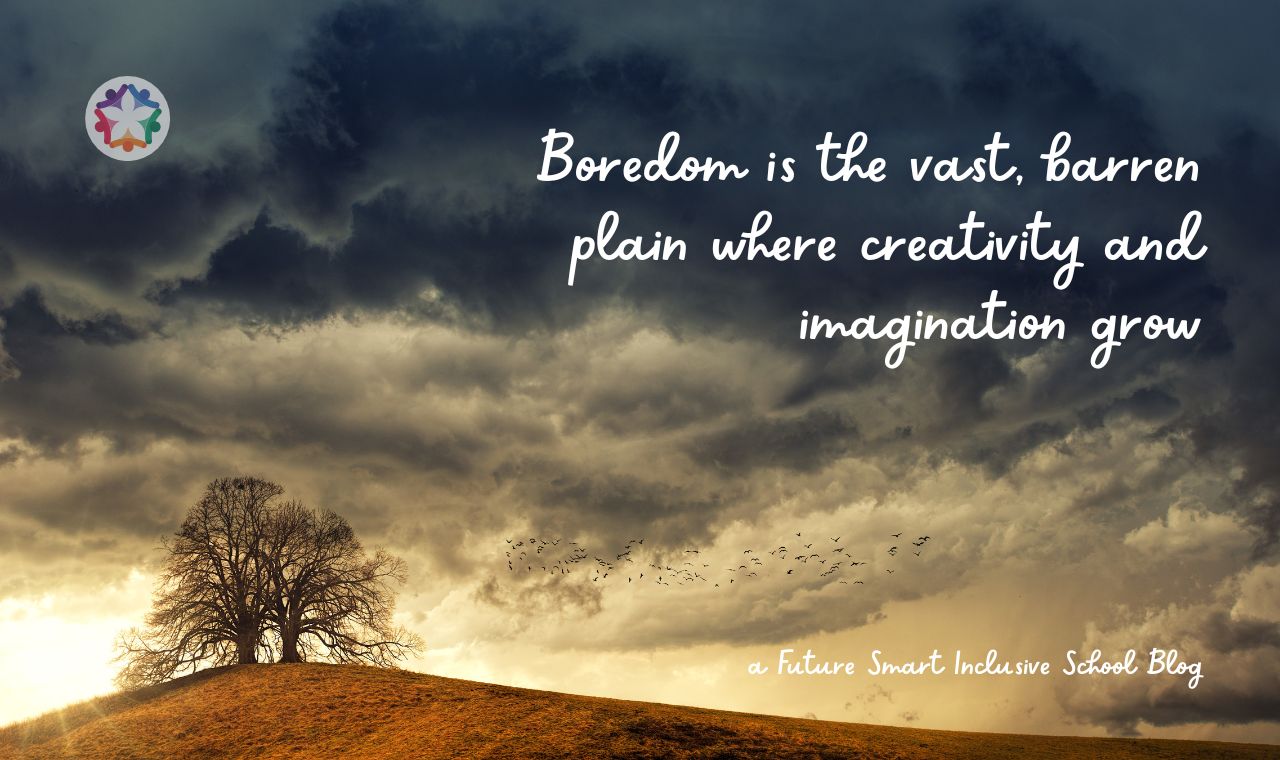Unlocking Wonderland: Boosting Your Child’s Creativity and Imagination

Creativity and imagination are invaluable skills for success in a rapidly changing world. The bad news is that there is no button to get the creative juices flowing. However, one can develop and nurture creativity as they grow. As parents and educators, we must guide children to the Fountain where Imagination Flows in Abundance.
Children are overstimulated and over-scheduled – they go to school, and their parents sign them up for after-school tutoring. They are under pressure to perform academically. This diminishes their ability to build creative skills essential to self-discovery. Many parents focus on their children’s academic excellence without nurturing other vital skills, such as problem-solving, critical thinking and creativity, to name a few. This is especially true for South Asian parents. Helping children unlock their creativity and imagination is a valuable investment in their future. These two tools enable children to think outside the box, think critically, and consider alternative solutions to problems. These skills are vital for future success, as they will encounter complex problems requiring innovative and original solutions.
Children with strong creative skills are avid lifelong learners. They continuously explore various subjects, ask questions and seek answers. Creative kids are passionate and driven about their interests. Children also find a healthy outlet for their emotions through self-discovery, self-reflection and introspection. Whether writing, drawing or building, these activities help reduce stress and enhance their overall mental health.
Yes, we’ve sung enough praises of these magic skills. But how do parents develop and nurture their children’s creativity and imagination? Here are a few things they can do.
Fostering Creativity and Imagination
Let Children Be Bored
Parents may feel dread or guilt when their child declares, “I’m bored”. Unfortunately, many parents make the mistake of providing quick solutions when their child (beginning in infancy) feels bored. This instant gratification lays their innate problem-solving skills to sleep.
Letting children feel bored may sound counterproductive, but it’s not. Usually, an aura of negativity surrounds boredom. But recent research suggests that feeling bored encourages people to search for interesting stimuli.
Boredom is the vast, barren plain where creativity and imagination grow
The barren plain of boredom itself is not creative. How to fill it and where it leads is important. Boredom Lab at York University, Canada (yes, this is an actual thing, it’s not made up!) is dedicated to exploring the “unengaged mind”. Psychologist John Eastwood, who leads the Boredom Lab, says, “When you feel bored because it’s an aversive and uncomfortable state, you’re motivated to look for something else. In that gap, there’s a real chance to discover something new. What matters to me, and what am I passionate about? I think that looking can be a source of creativity”
JK Rowling, the author of the immensely popular Harry Potter series, imagined the now well-loved story on a train journey. That’s an example right there. When we feel bored, we have the superpower to entertain ourselves, and sometimes, if we’re talented and fortunate enough, it may really pay off, as in Rowling’s case. Just imagine, if Rowling had data and Netflix, Instagram, or Twitter to scroll through, the magical world of Harry Potter may never have been born!

Give Children the Gift of Art and Literature
Art and literature – in their many forms, are powerful tools for fostering creativity and imagination. The goal is not to transform your child into another Leonardo Da Vinci but to give them the opportunity to inspect things and feel curious.
Many millennials (some of whom I know personally) feel an odd sense of pride when they happily declare that they never go to museums because they’re boring. However, it’s where one may experience wonder, have questions, and seek answers.
In its various forms, literature allows readers to travel to different worlds right in the comfort of their living spaces. It helps them gain broader perspectives, see things in a different light and build a strong vocabulary. Fostering a love of reading in children helps them develop new ideas and communicate effectively.
Take your child to a museum. Show them historical artefacts or paintings, wake up their curiosity, allow them to read books not part of their school curriculum, and watch them soar!
Spend Time Outside
Kids these days are left to their devices – quite literally! They are holed up with their tablets or smartphones, and God forbid if parents try to disconnect them for a while!
Our lives are filled with sudden events (car horns, sirens, ringing phones, television, etc.) that hijack attention. In comparison, nature is a respite which allows us to replenish our energy and thinking processes. Spending time outdoors is important. Numerous studies have highlighted the benefits of stepping outside. It isn’t just enjoyable to spend time outdoors — it’s also necessary. Researchers propose that kids who play outside are better at paying attention, happier and less prone to stress and anxiety than those who spend more time indoors.
When exposed to nature, children become more creative. They can use all five senses instead of just sight and sound. They can use their imaginations to create their own games.
Don’t Solve All their Problems
Yesterday, I saw a mother walking her daughter home from school. The child was around 7-8 years old. I was astonished to see that it was the mother who was carrying the bag for the daughter. Understandably, parents wish to ease the path for their children, but it is futile and unproductive not to let them experience some adversity.
When parents rush to fix their child’s problems or conflicts, they may solve the issue quickly, but their child will have learned no skills from the experience. When faced with a challenge or problem, children figure out a way around it. It’s a natural process. Carrying your child’s bag appears like offering “help”. Today, it’s the bag; tomorrow, it will be bigger issues. And your child will not be prepared to fix them independently because they were never allowed to think about solutions in their formative years.
How does creativity fit into this? Problem-solving requires creative thinking. Remember the story of the thirsty crow who dropped pebbles in the water vessel – it’s like that. We always find unique solutions. And we developed this skill over time when we faced problems and challenges. Remove the hurdles and we’re left with no skills for the future.
In the end…
Creativity and imagination are vital for the holistic development of children. These tools equip them with essential skills that will carry them forward throughout their lives, allowing them to navigate challenges, express themselves, and contribute meaningfully to society. We empower children to become innovative and resilient individuals by fostering creativity and imagination.
Read more
Click here to read our previous blogs: Future Smart Blogs




Leave a Reply